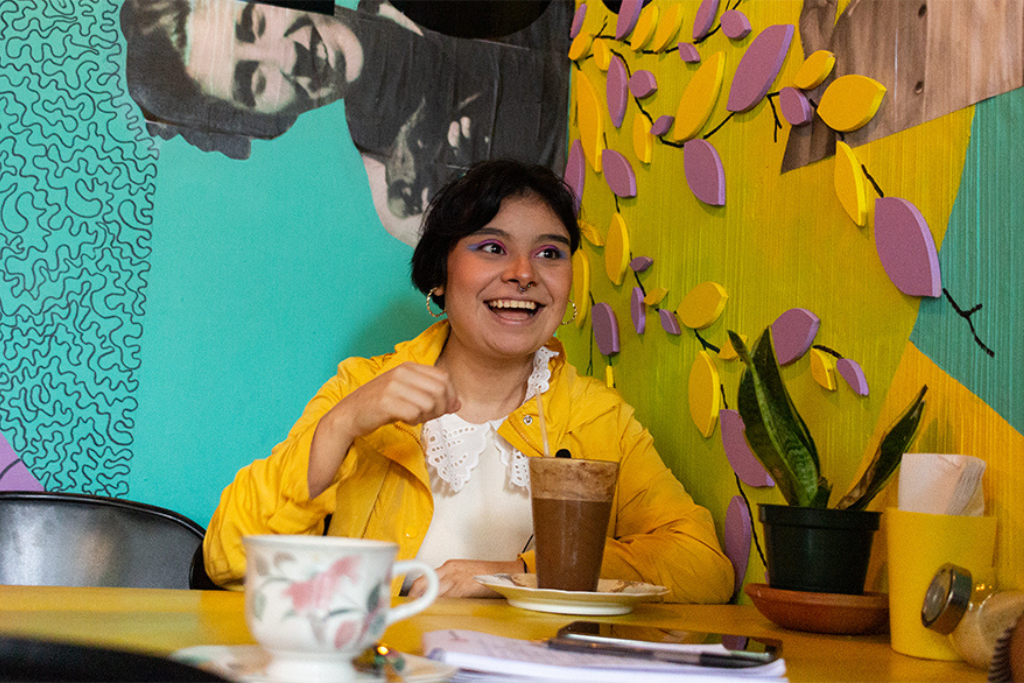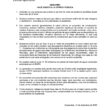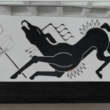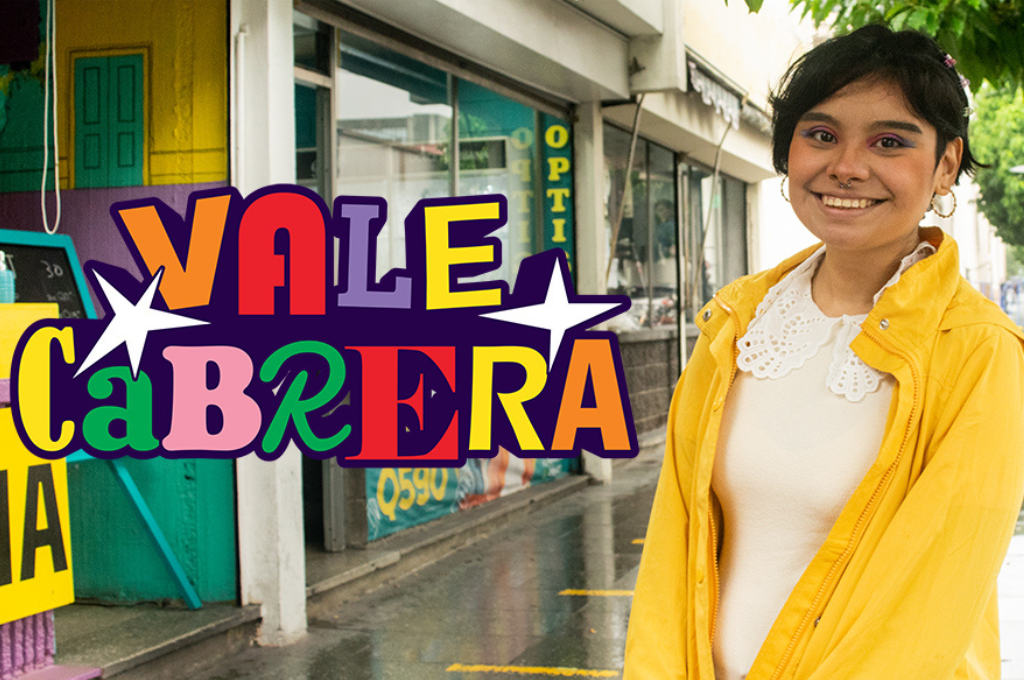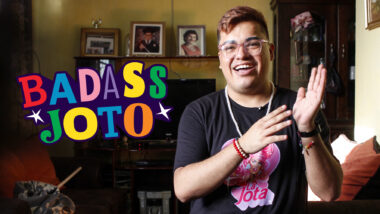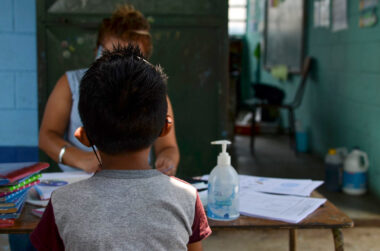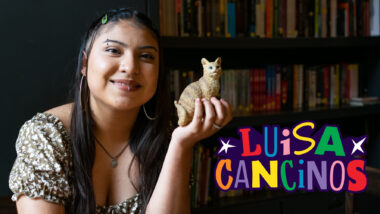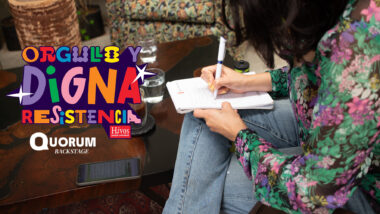Vale arrived for our interview sporting a bright yellow cape and a beaming smile that lit up the gray day and instantly revealed her vibrant personality. Vale, short for Valeria, is restless, happy and has clear ideas. A graphic designer and creator of audiovisual content, she identifies as a queer and bisexual woman.
She thinks it’s important to recognize and define her gender and sexuality, although in her case these labels are fluid and can redefine themselves:
The road to self-discovery wasn’t easy because Vale grew up – in her words – in a “hyper-religious” environment. When she was 14, she started to feel attracted to some of her female friends and classmates. She tried to block out these thoughts and feelings, thinking they were sinful, but they wouldn’t go away.
She’ll never forget what was perhaps the most traumatic experience of her life and which still causes her anxiety.
Vale started to discover herself when she was 18. At the time she belonged to a Catholic youth group. She thinks someone took a photo of her when she was at a party and showed it to the group’s coordinators.
A few days after the party, the group invited her to participate in a prayer session. But it was a trap. When she arrived they put her in a small room, sat her on a chair and surrounded her with other young people and adults. Then everyone started praying for the demons to abandon her. It was an exorcism.
“They were praying to rid me of homosexual tendencies I didn’t even know I had! I went into shock and had to vomit. As I headed to the bathroom, they were all clapping for joy because they had driven ‘Beelzebub’ out of me,” she recalls.
Then with an impish grin she adds, “Now I say that they didn’t pray hard enough because I ended up bisexual,” and laughs whole-heartedly.
The notion that homosexuality is caused by demonic possession is of course false, but many religious people believe so. The problem is that practices based on these myths, like exorcisms and conversion therapies, end up causing deep and lasting emotional trauma, especially in younger people.
It took two more years for Vale to understand that she was indeed attracted to women and that there wasn’t anything wrong with that. She decided to define herself as a queer person. Now she is actively involved in Feminarte, a feminist collective that also embraces trans women.
For Vale, the great challenge in Guatemala is to continue resisting with what she calls “radical tenderness.” That is to keep on fighting to change social attitudes without losing one’s joy or love or the ability to imagine a better future.
